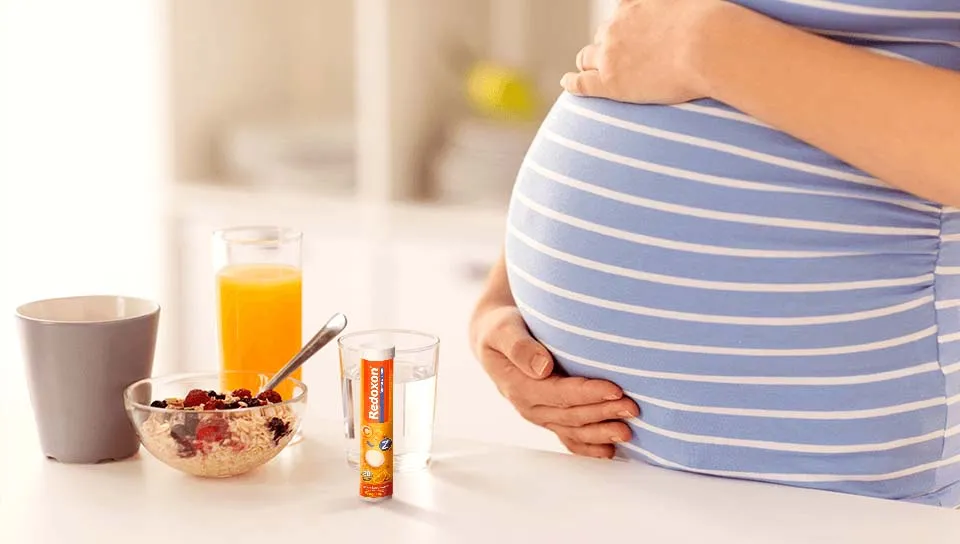Is it actually true? Like can vitamin C prevent pregnancy, or is it just an old wives’ tale? It’s not a guaranteed method. Let’s break down the facts and myths of vitamin C and pregnancy prevention.

But can vitamin C prevent pregnancy? Vitamin C is a super-vitamin that a lot of folks are well-versed in in its immunity-boosting, complexion-lightening, and cold-squashing virtues.
But does it possess the ability to keep pregnancy at bay? This is something that has been a question of intrigue and misunderstanding for ages.
Briefly, no, vitamin C is not an effective or healthy method of avoiding pregnancy. Let’s get down to business and separate fact from fiction and examine why vitamin C as a contraceptive is not worth it.
What is Vitamin C?
Vitamin C, or ascorbic acid, is a nutrient contained in fruits such as oranges, strawberries, and kiwis, as well as in vegetables like bell peppers and broccoli.
It’s renowned for having antioxidant functions that protect cells against damage, support the immune system, and facilitate healthy skin. Its contribution towards preventing pregnancy isn’t scientifically proven.
The Myth: Vitamin C as a Contraceptive

That vitamin C prevents pregnancy is likely to have started as a myth in ancient times and through hearsay.
Some people believe that taking high doses of vitamin C can bring about miscarriage or be an emergency method of contraception.
There is no scientific evidence to confirm these claims. Rather, relying on vitamin C as a method to prevent pregnancy is unsafe and ineffectual.
Why Vitamin C Doesn’t Prevent Pregnancy
There are no study findings that vitamin C prevents pregnancy or leads to a miscarriage. It is not advised as a contraceptive method by medical professionals and organizations like the World Health Organization (WHO).
Also, consuming extremely high doses of vitamin C (far beyond daily recommendations) can cause side effects like stomach upset, diarrhea, and kidney stones. It won’t prevent pregnancy but can be unhealthy for you.
Lastly, vitamin C won’t replace proven means of avoiding pregnancy, such as condoms, birth control pills, or intrauterine devices (IUDs).
How Pregnancy Actually Happens

To understand why vitamin C doesn’t work, let’s quickly review how pregnancy occurs. Pregnancy happens when sperm fertilizes an egg, usually during ovulation.
To prevent pregnancy, contraception must either block sperm from reaching the egg or stop ovulation altogether. Vitamin C does neither of these things. Pregnancy results when a sperm is fertilized with an egg.
This is what occurs when a woman’s ovary discharges an egg each month during ovulation. If sperm are present in the fallopian tube (usually from sex), they may meet and fertilize the egg.
The egg, now fertilized, travels to the uterus and implants itself in the uterine lining, where it develops. Hormones activate the body to help form the embryo, and a pregnancy test will be capable of indicating it in weeks.
Timing is key for pregnancy—sperm and egg must encounter each other in 12–24 hours of ovulation. If this fails to happen, the egg deteriorates, and shedding of the uterine lining occurs at menstruation.
Are there Safe and Effective Contraception Methods?
If you’re looking to prevent pregnancy, there are many safe and effective options available. Here are a few:
1. Condoms
These can delay pregnancy and sexually transmitted diseases (STDs).
2. Birth Control Pills
These, which are taken daily, inhibit ovulation.
3. IUDs
These are long lasting and highly effective.
4. Emergency Contraception
Also known as the “morning-after pill,” this can be taken within 72 hours after unprotected sex to prevent pregnancy.
Always speak to a healthcare provider to find out the best one for you.
What are the Risks of Using Vitamin C for Pregnancy Prevention?

Depending on vitamin C to prevent pregnancy is not only unsuccessful but also unsafe. Here’s why:
1. Health Hazards
Taking high doses of vitamin C may cause nausea, cramps, diarrhea, and even kidney stones.
2. False Sense of Security
Assuming that vitamin C can prevent pregnancy could result in having unprotected sex, thus raising the chances of unplanned pregnancy and STIs.
3. No Alternative Plan
Unlike actual contraception, vitamin C does not protect against pregnancy or infections.
What About Vitamin C and Fertility?
Vitamin C is not used to prevent pregnancy but can play a role in reproductive health overall. For example:
- It protects the immune system, which the body needs to be healthy.
- It can improve sperm quality in men, some studies claim.
- It aids in the absorption of iron, which is needed for women with heavy flow.
And yet, these benefits are not related to preventing pregnancy.
Last Lines
Vitamin C is an important nutrient with numerous health benefits, yet it is not a safe and effective way to prevent pregnancy.
Dependence on it as a means of contraception is not effective and may be dangerous. To avoid pregnancy, adhere to effective methods such as condoms, birth control pills, or IUDs, and seek advice from a medical provider.
Vitamin C is great to boost your immune system and look glowing, but it is no pregnancy pill. Reign supreme with proven scientific methods of contraception and be well informed regarding your own well-being.
Your body deserves good, reliable care—ignore myths that can do you more harm than good.
